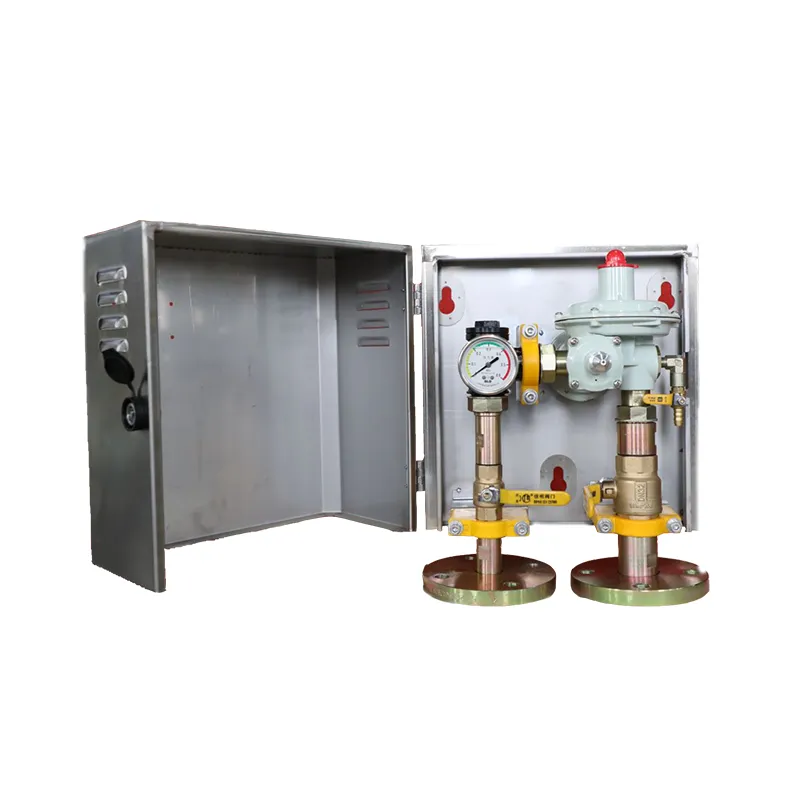
Nov . 08, 2024 00:46
Back to list
Efficient Heat Exchanger Solutions for Natural Gas Applications and Energy Optimization
Natural Gas Heat Exchangers Efficiency and Applications
Natural gas heat exchangers are crucial components in various industrial and residential systems, playing a significant role in enhancing energy efficiency and optimizing heating processes. These devices facilitate the transfer of heat between two or more fluids without mixing them, making them essential in applications where temperature regulation is vital.
Understanding Heat Exchangers
At their core, heat exchangers operate on the principle of thermal conduction, allowing heat from a hotter fluid to flow into a cooler one. In natural gas applications, these exchangers typically work by harnessing the thermal energy from natural gas, which is then transferred to a secondary fluid, often water or air, to provide heating or other thermal management solutions.
Types of Natural Gas Heat Exchangers
There are several types of heat exchangers used in conjunction with natural gas, each tailored for specific applications
1. Shell and Tube Heat Exchangers This design features a series of cylindrical tubes, one set carrying the natural gas and the other containing the secondary fluid. The heat exchange occurs through the tube walls, allowing for efficient heat transfer and making them ideal for high-pressure applications.
2. Plate Heat Exchangers Comprising many thin plates stacked together, these heat exchangers provide a large surface area for heat transfer in a compact design. They are versatile, easily cleaned, and are often used in residential heating systems as well as industrial processes.
3. Air-Cooled Heat Exchangers Using ambient air to cool or heat fluids, these exchangers are particularly useful in scenarios where water is scarce or expensive. They are commonly found in power plants and oil refineries, where they help dissipate excess heat from the process.
4. Fin-Tube Heat Exchangers These exchangers have tubes equipped with fins, which enhance the surface area for heat transfer. They are commonly employed in heating applications where natural gas is used to warm air or water for residential and commercial use.
Advantages of Natural Gas Heat Exchangers
Natural gas heat exchangers come with numerous advantages that contribute to their popularity across various sectors
natural gas heat exchanger

- Energy Efficiency By utilizing the thermal energy from natural gas effectively, these heat exchangers help reduce energy consumption, leading to substantial cost savings over time
.- Environmental Impact Natural gas burns cleaner than other fossil fuels, producing lower emissions of harmful pollutants. Efficient heat exchangers that optimize natural gas use can contribute to a reduction in greenhouse gas emissions.
- Versatility The adaptability of heat exchangers makes them suitable for a wide range of applications—from power generation to residential heating solutions, making them invaluable in many industries.
- Reliability With proper maintenance, natural gas heat exchangers can operate efficiently for extended periods, which enhances system reliability and reduces downtime.
Applications of Natural Gas Heat Exchangers
Natural gas heat exchangers are used in numerous applications, including
- Industrial Processes In manufacturing and processing industries, heat exchangers facilitate the recovery and redistribution of heat, optimizing overall plant efficiency.
- Power Generation These devices play a crucial role in combined cycle gas turbine (CCGT) power plants, where they capture waste heat to improve energy recovery rates.
- Residential Heating Many modern heating systems, including furnaces and water heaters, utilize natural gas heat exchangers to provide consistent and efficient temperature control.
- Refrigeration and HVAC Systems In heating, ventilation, and air conditioning (HVAC) systems, they help regulate temperatures and improve cooling efficiency, especially in commercial buildings.
Conclusion
Natural gas heat exchangers are vital components that enhance energy efficiency and improve the sustainability of heating processes. By understanding the different types and applications of these systems, industries and consumers can make informed decisions about their energy needs. As a cleaner-burning fossil fuel, natural gas, when effectively harnessed through efficient heat exchangers, offers a promising pathway toward greater energy conservation and reduced environmental impact.
Latest news
-
Safety Valve Spring-Loaded Design Overpressure ProtectionNewsJul.25,2025
-
Precision Voltage Regulator AC5 Accuracy Grade PerformanceNewsJul.25,2025
-
Natural Gas Pressure Regulating Skid Industrial Pipeline ApplicationsNewsJul.25,2025
-
Natural Gas Filter Stainless Steel Mesh Element DesignNewsJul.25,2025
-
Gas Pressure Regulator Valve Direct-Acting Spring-Loaded DesignNewsJul.25,2025
-
Decompression Equipment Multi-Stage Heat Exchange System DesignNewsJul.25,2025

